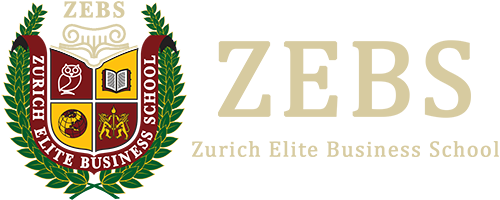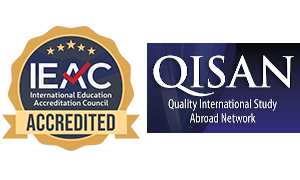Master of Business Administration – Tourism & Hotel Management
Business Courses
The Strategy course is a state-of-the-art workshop that gives managers, consultants and coaches the knowledge to develop an effective strategy for their business or clients’ business. Pressure for short term financial results and shareholders value does not release executives from the responsibility for the long term success. If they want to reach excellence in their business they have to be capable of articulating a strategy that differentiates from the competition.
This course will hone your intuition and equip you with tools to turn strategic ideas into actions. You will be provided with state-of-the-art concepts that have been validated in the field as well as the latest developments in strategic thinking and you will learn through case studies a scheme of how to use them in several business situations. You will sharpen your competitive skills and change the way you will strategically manage your business.
At this Advanced Leadership course an exciting leadership and teambuilding event at a sports ground takes place and it provides the students with a basic understanding of the leadership challenges of business. The students split up into several teams and the local sports centre team explain the rules. The team leaders get briefed in the theoretical elements of the team-leading and team-building processes which have to be realized.
Before the match begins each team leader “recruits” its team, allocates certain roles and positions to their members and sets the strategy. After this the game begins. Team self reflection and feedback processes under ´real-life` difficult circumstances such as time and performance pressure take place. Strengths and weaknesses get identified which lead to adaptations in the roles, positions and strategies of the teams. This gives a fresh perspective on the game and the adjustment of the teams’ strategies lead to an optimized way of confronting the opponent.
Before rounding off the evening with delicious burgers and drinks, the students and the staff reflects on the match according to their initial goals and strategies. The strategy amendments and their implementation get discussed as well as the “leadership-lessons” learned.
International marketing is a deepening approach within the broad field of marketing. Nowadays, most companies have a more or less international orientation. The corresponding activities are including export / import, licensing, joint ventures, subsidiaries. The degree of internationalisation is different, but the general tendency is towards more and more global companies. Under these circumstances, marketing is a more challenging task. The objectives of the course thus are:
- to make students familiar with internationalisation and globalisation effects and their repercussions on marketing
- to analyse international market environments and their risks . to discuss specific international objectives and strategies
- to provide students with knowledge on internationally adapted marketing instruments
- to discuss international marketing process tools, e.g. international marketing research
To achieve a deeper understanding, various real life case studies will be studied to highlight specific issues of international marketing.
There is increasing recognition of the significance of the Human Resources of an Organisation being it's KEY resource. The debate surrounds the issue of whether this comment remains at the level of rhetoric and what organisations can do to best utilise this critical resource. The challenge for HR professionals is to deliver Performance improvement within a context which is often sceptical about the contribution of HR to overall strategy.
The aim of this course is to confront the issues associated with Human Resource Management's contribution to achieving organisational objectives. Specific reference will be made to:
- The meaning and understanding of Strategic HR Management
- Management development and it's linkage to Organisational Development
- Performance management with particular reference to reward management
- International HR issues
The module leader has written a number of case studies based on his consultancy experience in a variety of industrial sectors and these will be used to support the learning process.
Manager do not only need to think entrepreneurially but also have to understand the financial relations within the company in order to achieve long-term success for the company.
This course will help you to improve rapidly your finance skills and develop a good understanding of main financial concepts in the tourism business.
The explanation of P&L, Balance Sheet, Cash Flow and Key Performance Ratios and the connection to strategy, business operations and corporate results of enterprises in the tourism industry will help you sharpen your finance know-how and equip you with the skills to manage your business successfully.
Manager do not only need to think entrepreneurially but also have to understand the financial relations within the company in order to achieve long-term success for the company.
This course will help you to improve rapidly your finance skills and develop a good understanding of main financial concepts in the hotel business.
The explanation of P&L, Balance Sheet, Cash Flow and Key Performance Ratios and the connection to strategy, business operations and corporate results of enterprises in the hospitality industry will help you sharpen your finance know-how and equip you with the skills to manage your business successfully.
The hospitality industry faces a number of specific challenges when it comes to manage their business efficiently. First, the amount of capital invested is high in a hotel or resort business making asset utilization the main profitability factor. Second, employees are trained to cater the guests rather than look for efficiency or management skills, so process improvements are not necessarily implemented on a business perspective rather than a service perspective.
In this business module the participants act in the role of a top management team in the hospitality industry. They are faced with the common challenges of this branch. This course simulates the business processes in a simplified way. During the simulation set up the participants discover the correlation between capital invested and “assets at work”. Walking through the various cost and profit centers of a hotel operation, the participants learn about the connection between daily work and profit / loss.
In the first simulation period it’s up to the participants to open a new hotel within a team being the top management team. They perform tasks like check-in, managing inventories, technical service, administration, housekeeping restaurant and bar.
In the second period, the teams are provided with various concepts of improving the standards of the hotel or changing the position of the hotel. The teams choose best suitable measures considering different factors like financial management, available employees, capacity and results which can be obtained by implementing these solutions.
By simulating the process of a typical hotel, basic concepts like Revenue per available Room, Average Room Rate, Room Capacity Utilisation, Revenue per Seat and per guest are connected with the daily business operations.
Moreover the participants learn business concepts like depreciation and cost of capital in a simple way getting insights on how to improve the business performance. They also learn about the interrelation of P+L account and department budget planning, Balance Sheet and Inventory Control, Cash Flow and Booking Rates.
The participants use these to develop out ideas for improvement in connection with a personal action plan for the implementation. During the simulated periods the participants get to know the different strategies which lead to better results in their business reality.
Objectives:
- Participants learn the general and hotel specific management ratios
- Participants get to know the ratio RevPAR (Revenue per available Room) and why it is the most important of all ratios used in the hotel industry.
- Participants get to know the ration ARR (Average Room Rate) and its importance
- Strengthening of entrepreneurial thinking of the employees
- Motivation and acceptance for target-oriented decisions and measures are achieved
- Fundamental financial and management skills are taught and understood
- Ideas for improvements are formulated anddefined for implementation
- Participants learn business management tools and their effects
Overview and Aims
The aim of this programme is to enable participants to develop specific skills that are pivotal to successful management and effective leadership. This programme encourages participants critical thinking and problem solving skills, develops their team working and interpersonal skills. By enhancing these skills participants will develop their levels of emotional intelligence and hence their credibility within the organisation.
The programme has a direct application to the work environment and participants are encouraged to draw upon their current (and past) work experience in order to contextualise their learning. As a result learners are encouraged to become more aware of themselves, their diverse personality traits, attributes and beliefs, and how these shape their own approach to work and that of colleagues. This strong sense of self awareness and awareness of others underpins the successful practice of management and effective leadership.
Programme Content
The programme will cover the following areas:
- Enhancing working effectiveness: to include establishing organisational and personal values and goal setting, strategic stakeholders’ analysis, personal resilience and managing stress.
- Effective communication: active listening, identification of needs, communication styles, presenting with impact.
- Negotiation skills: conflict management, understanding differences, the cultural dimension.
- Decision making: analysis and problem solving, creative thinking, project management and tracking, risk management.
- Emotional Intelligence: positive mental state, understanding self, building relationships.



